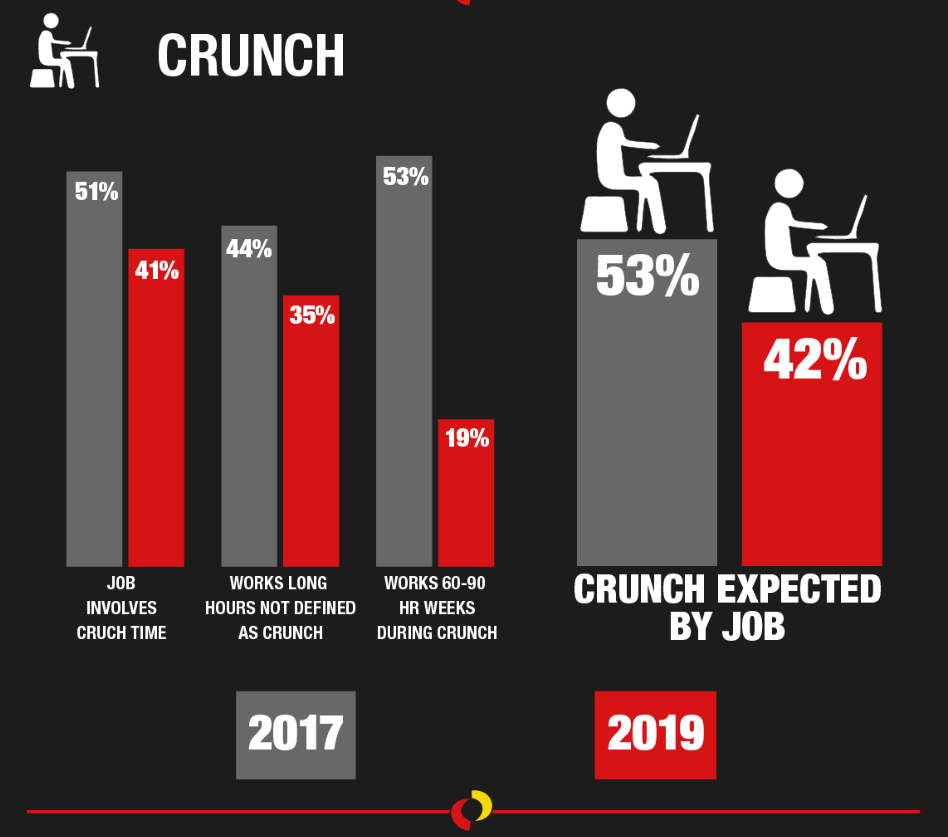The game industry has struggled with a concept commonly referred to as “crunch”. Crunch is used to describe the act of employees working overtime in order to meet a deadline in the development of a project. Yet, in the game development industry, where we are constantly faced with challenges to balance the creation and tuning of complex coded systems with publisher deadlines and the intangible concept of fun, overtime work frequently occurs.
There are varying opinions on what types of overwork falls under the term “crunch”, but regardless of situation dependent definitions of crunch, there are two important, related concepts that can be defined: unsustainable work and management abuse.
Unsustainable Work
Evan Robinson’s white paper, “Why Crunch Mode Doesn’t Work: Six Lessons”, notes that more than a century of studies show that long-term useful worker output is maximized near a five-day, 40-hour workweek. Productivity drops immediately upon starting overtime and continues to drop until, at approximately eight 60-hour weeks, the total work done is the same as what would have been done in eight 40-hour weeks.
The paper also notes that while work can continue seemingly unimpeded, the cognitive function and decision making abilities of the workers are severely reduced during overwork periods. As game development is an extremely cognitively demanding process for all disciplines, game development studios should always aim to have work weeks that do not exceed 40 hours, and that periods of overwork should not extend beyond two weeks.
Management Abuse of Workforce Resources
It is the responsibility of management and leadership to maintain the mental, physical, and emotional health of their teams. While all teams face unforeseen challenges, systematic abuse of workforce resources to meet milestones without course correcting is inappropriate leadership behavior. If management identifies consistent failure to meet deadlines within normal work hours, it is their responsibility to review their process, pipelines, communications, support networks, and expectations and adjust them accordingly to support their team maintaining their health and work-life balance.
Reporting
If you would like to make a complaint report about abusive practices at a studio you work for, please contact us.

